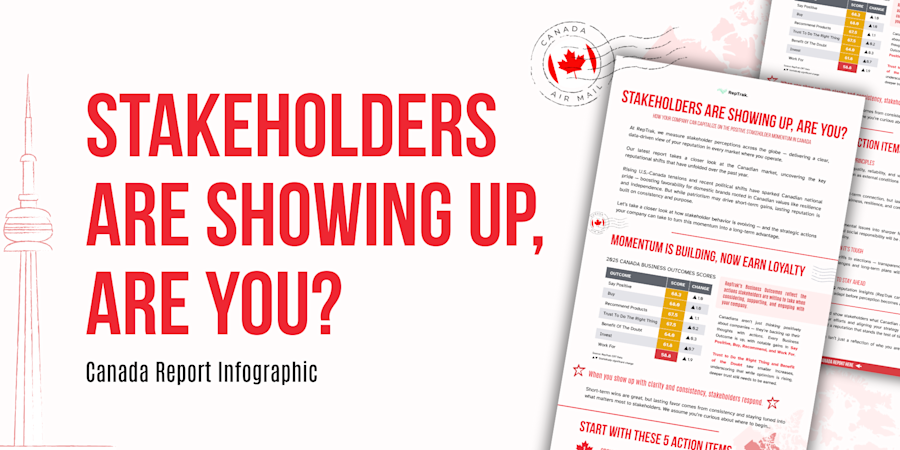Communication Best Practices to Resonate With a Global Audience in 2021
Blog Post17 Dec, 2020
During the pandemic in 2020, consumers cared more about what companies said regarding important issues than what they sold — no one needed more special offers or publicity stunts. Although many people have viewed companies as machines designed to generate profit, they’re increasingly turning to organizations for guidance when navigating difficult times. According to research from the Data Science team at RepTrak, 71% of the public feels that companies should be sources of information in times of crisis compared to 44% who think companies should prioritize offering discounts.
What companies choose to do and say can impact both public perception and their corporate reputations. Even when organizations implement positive initiatives, most aren’t sure how to resonate with audiences through their communication. What they say might be going in one ear and coming out the other. That’s why knowing how to successfully communicate is always critical but even more so when things are tough.
There’s no denying that stakes are raised during crises. To ensure that your communications protect your corporate reputation and uphold the public’s expectations, follow these five international communication best practices for 2021:
1. Stay in constant communication.
You can’t always control whether news is good or bad, but you can make sure you’re keeping consumers and other stakeholders informed. This is true whether you’re dealing with a local natural disaster, a national supply chain holdup, or an international pandemic. Our research indicates the companies that remain in constant communication are viewed as more trustworthy, and their benefit-of-the-doubt scores improve by 5.5 points on a scale of 0 to 100. A higher score means that people will be more inclined to think positively about your company, even during times of crisis.
2. Utilize traditional earned media.
Earned media might cost more money and feel more nerve-racking because you don’t have direct control over the message, but it’s worth it. While owned media can be directly managed, it’s not as credible as third-party sources. That’s why investing in traditional earned media during times of crisis is a communications best practice. Our research shows that when people learn about policies and decisions through traditional media outlets, companies can expect bigger boosts to their corporate reputations.
3. Prepare people for change.
When you communicate to stakeholders about potential changes, you’ll be able to ensure smoother transitions for your company internally and externally. For example, in 2019, the Toyota Group in Italy anticipated the business world moving toward remote work. The leadership team spent a lot of time training employees for telecommuting, and their communication professionals kept employees in the loop regarding updates. Because of these steps and Toyota’s crisis communication, everyone was able to smoothly shift online when the pandemic hit.
4. Be transparent and empathetic, not opportunistic and commercial.
When you’re establishing crisis communication plans, consider how an international audience will receive your messaging. In Spain, for example, we found that crisis communications centered on employee safety measures were the most valuable. Some messages might resonate better with different demographics, but any communication that’s informative, honest, and delicate is typically the right approach.
5. Prioritize these five topics.
Every crisis communication plan should include five key points: (1) what you’re doing to protect consumers’ safety, (2) why your products and services will change, (3) which steps you’re taking internally, (4) how you’re caring for employees, and (5) where the public can find additional information. By preparing all these details, you’ll be able to swiftly and accurately answer most potential questions. This is important because your responses (and how you give them) impact people’s initial perception of your company during a crisis.
Our research shows that people in Italy and the U.S. look to corporations even more than governments to lead the way during difficult times. The pandemic has been incredibly trying for everyone, but it’s also provided companies around the world with the opportunity to step up in inspiring ways. Click here to read about a few examples.






